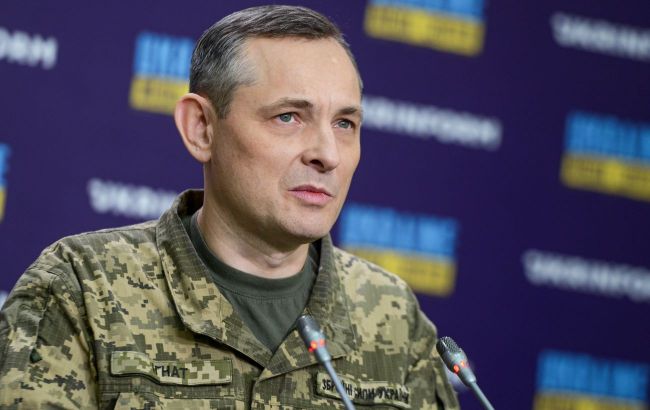Ukrainian Air Force explains challenges of downing Shahed drones
 Yurii Ihnat (Getty Images)
Yurii Ihnat (Getty Images)
Russian Shaheds are a difficult target for fighters because they fly low and slow. They were created to overcome the air defense system, Colonel Yurii Ihnat, the spokesperson of the Air Force Command of the Armed Forces of Ukraine, says in an interview with RBC-Ukraine.
"They fly at a speed of 100-200 kilometers per hour along the route set by the operators. They change these routes every time," he says.
According to him, Shaheds fly very low and too slow for a fighter jet to effectively intercept it.
"Yes, they are more difficult for fighters to shoot down. But as for other means, we cannot say that they are more difficult to hit than cruise missiles. Both targets are complex. Both targets are designed to overcome air defense systems. It all depends on the circumstances, on the conditions, on the terrain," Ihnat said.
At the same time, on radar systems, Shaheds are just as visible as missiles. "Of course, they are visible. Our duty service, like other duty services, has access to the Virage Tablet system, which shows the air situation on a monitor," he says.
Ihnat says that with the help of this system and other closed sources of information, the Telegram channel of the Air Force is maintained, where they inform about missile and drone threats without excessive detail.
"Why is this so? Sometimes, like cruise missiles, Shaheds can hide from our radar for a while, so there is no need to inform the enemy about it," the spokesperson added.
Shahed attacks
According to UK intelligence, Russia uses kamikaze drones for massive attacks on the territory of Ukraine to weaken the air defense system. One of Russia's goals was likely to weaken Ukraine's air defenses to create a battlespace ahead of any concerted winter campaign of strikes against Ukraine's energy infrastructure.
Earlier, the deputy head of the State Directorate of Energy, Vadym Skibitskyi, said that this year's massive strikes may resume after the start of winter, when electricity consumption will reach its peak. "Russians are waiting for the temperature to drop below zero," said Skibitskyi.

